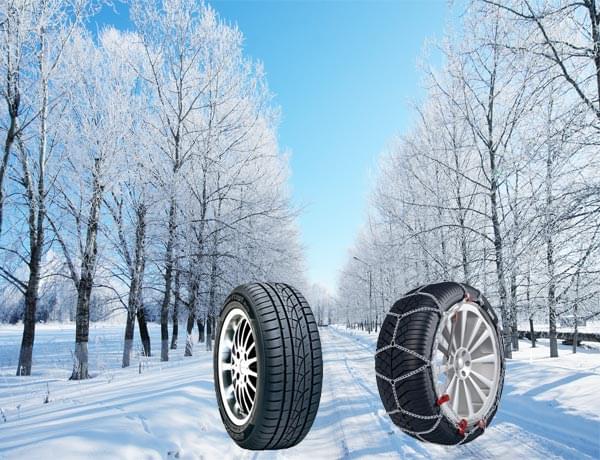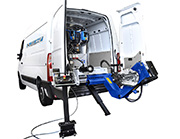
Winter Tires vs Snow Chains
Winter inevitably means temperature drops and dangerous driving conditions; it's that time of the year when we need to choose the best and safest solution for our vehicle. Assocatene (Association of Italian manufacturers of vehicles mobility chains) and TÜV Italy have carried out comparative tests between snow chains and winter tires, showing which solution is the best in different weather conditions.
Comporative tests have been performed on Audi A3 Sportback (front-wheel drive) under the following conditions:
- Braking on icy road starting from a speed of 30 Km/h (with ABS);
- Braking on snow-covered road starting from a speed of 30 Km/h (with ABS);
- Traction with first start (with 3.7 tonnes of load on the vehicle);
- Start at the bottom of a hill with maximum slope;
- Braking on a wet road surface, starting from a speed of 80 Km/h with the outside temperature between 17 and 21°.
The following table summarizes the results.
| Premium winter tires | Economy winter tires | All Season | Summer tires | |
| Braking on ice | 25,3 m | 27,8 m | 26,8 m | 33 m |
| Braking on snow-covered road | 12,4 m | 13,5 m | 14,5 m | 16,3 m |
| 12mm Snow Chains | 9mm Snow Chains | |
| Braking on ice | 15,7 m | 16,7 m |
| Braking on snow-covered road | 14,7 m | 15 m |
| Premium winter tires | All Season | Summer tires | Snow chains | |
| Traction | 394,5 kg | 358,3 kg | 194,9 kg | 536,8 kg | Start at bottom of a hill with maximum slope |
9,80% | 21,40% |
| Braking on a wet road | 30,2 m | 30,74 m | 26,26 m |
What is, then, the best choice?
Results have shown that the winner cannot be established, as a lot still depends on weather conditions and driving style, to choose which system to use.
Snow chains are the most efficient and reliable solution on icy roads or/and uphill roads, but putting them on your vehicle is not the most simple task, as well as their removing when road conditions are not ideal.
As widely discussed in other articles on our web site, if the choice falls on winter tires, they should be correctly chosen according to weather conditions. It is dangerous to use summer tires in winter, as well as winter tires in summer. All-Season tires are a compromise, do not require replacement when season changes during the year, and can help save money. But you should expect a bigger wear-out rate (and therefore more frequent purchases of this type of tires), higher fuel consumption and less safety.




